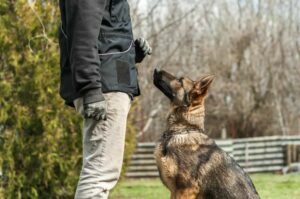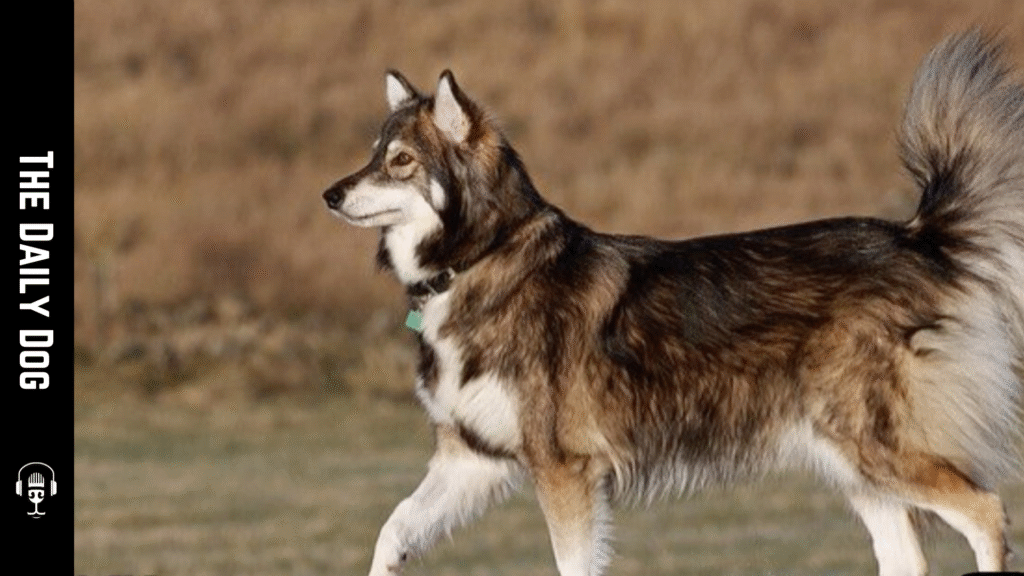The Utonagan dog breed is a striking and majestic addition to the world of working and companion dogs. Known for its wolf-like appearance and gentle temperament, this breed has captured the hearts of dog enthusiasts and outdoor adventurers alike. With origins rooted in the rugged terrains of the United Kingdom, the Utonagan is a testament to the beauty and versatility of Northern breeds. Whether you’re considering welcoming a Utonagan into your family or simply fascinated by its unique characteristics, this article offers an in-depth look at this remarkable breed.
Origins and History of the Utonagan
The Utonagan breed emerged in the late 20th century in the UK, primarily as a result of crossbreeding Siberian Huskies, Alaskan Malamutes, and German Shepherds. The goal was to create a dog that combined the wolf-like appearance of wild canines with the loyal and friendly nature of domestic breeds. The name “Utonagan” is derived from the language of the Indigenous Australian tribes, meaning “Great Spirit” or “Spirit of the Wolf,” reflecting the breed’s wolf-like looks and noble bearing.
Initially developed as a working dog suitable for cold climates, the Utonagan was bred to be an excellent companion for outdoor activities such as hiking, sledding, and camping. Over time, the breed gained popularity as a family pet and a loyal guard dog, thanks to its protective instincts and gentle demeanor.
Physical Characteristics of the Utonagan
One of the most captivating aspects of the Utonagan is its appearance. The breed boasts a striking resemblance to wild wolves, making it stand out in any setting. Here are some of its defining physical traits:
Size and Build: Utonagans are large, muscular dogs with a strong, athletic build. Adult males typically weigh between 85-110 pounds, while females generally range from 75-100 pounds. Their stature is commanding yet graceful, with a balanced body structure suited for endurance and strength.
Coat and Color: The breed has a dense double coat that provides insulation against cold weather. The coat is typically medium length, soft to the touch, and requires regular grooming. Coat colors generally include shades of grey, black, sable, and occasionally white, often with distinctive facial markings.
Head and Face: The Utonagan’s head is wedge-shaped, with erect ears that give an alert expression. Its eyes are almond-shaped, usually amber, blue, or a mix of both, contributing to its wolf-like appearance.
Tail and Legs: The tail is bushy and carried in a gentle curve over the back. The legs are sturdy and proportionate, designed for running and working in challenging terrains.
These physical features not only give the Utonagan its wild aesthetic but also make it well-suited for active lifestyles and outdoor pursuits.
Temperament and Personality
Despite their wild appearance, Utonagans are known for their friendly, loyal, and gentle nature. They are affectionate with their families and tend to be good with children, making them excellent family pets when properly socialized. Their temperament reflects a balance of independence and sociability, which is typical of Northern breeds.
Loyal and Protective: Utonagans are fiercely loyal to their families and can be protective of their territory. They are naturally wary of strangers but are not aggressive without cause. Early socialization helps them develop a confident and well-mannered demeanor around new people and other animals.
Intelligent and Trainable: Highly intelligent, Utonagans respond well to consistent, positive reinforcement training methods. They thrive on mental stimulation and enjoy activities that challenge their problem-solving skills.
Energetic and Playful: As active dogs, Utonagans require regular exercise to stay happy and healthy. They enjoy outdoor adventures, running, and playing fetch. Without sufficient physical and mental activity, they can become bored and potentially develop behavioral issues.
Independent Yet Affectionate: While they enjoy independence, Utonagans are also deeply affectionate and form strong bonds with their families. They often seek out their owners for companionship and enjoy being involved in household activities.
Health and Care Requirements
Maintaining a healthy Utonagan involves understanding their specific needs related to their size, coat, and activity level. Here are some key considerations for caring for this breed:
Diet and Nutrition: A balanced diet tailored to large, active breeds is essential. High-quality dog food that provides adequate protein, healthy fats, and essential nutrients supports their energy levels and overall health.
Grooming: Regular brushing, at least 2-3 times a week, helps manage shedding and keeps their coat healthy. During shedding seasons, daily brushing may be necessary. Bathing should be done as needed, and routine ear cleaning and dental care are also important.
Exercise: Utonagans thrive on daily vigorous exercise. They should have access to outdoor space for running and playing. Activities like hiking, sledding, and agility training are ideal to keep them mentally and physically stimulated.
Health Concerns: Like many large breeds, Utonagans are prone to certain health issues, including hip dysplasia, elbow dysplasia, and certain genetic conditions. Regular veterinary check-ups, responsible breeding practices, and screening for genetic disorders help ensure their well-being.
Living Environment: They are best suited for homes with ample outdoor space and a secure yard. While adaptable to different living situations, they do require plenty of exercise and mental engagement.
Training and Socialization
Proper training and early socialization are crucial for developing a well-rounded Utonagan. Due to their intelligence and independent nature, they respond best to positive reinforcement techniques such as treats, praise, and play.
Early Socialization: Introducing puppies to various people, animals, and environments helps prevent shyness or territorial behavior.
Consistency: Establishing clear boundaries and consistent commands fosters understanding and respect.
Exercise and Mental Stimulation: Incorporate obedience training, puzzle toys, and outdoor adventures to satisfy their mental and physical needs.
Patience and Persistence: Training should be approached with patience, as Utonagans can sometimes be stubborn, but they are eager to please when motivated correctly.
Utonagan as a Family Dog
The Utonagan’s friendly and gentle temperament makes it an excellent family dog. They are especially good with children, thanks to their playful and tolerant nature. Their protective instincts can also make them excellent watchdogs, alerting their families to any unusual activity.
However, due to their size and energy levels, they require active families who can provide regular exercise and mental stimulation. Their social nature means they thrive on human interaction and do best in environments where they are included in daily activities.
Suitable Living Situations for the Utonagan
While adaptable, Utonagans are best suited for active households with ample space to roam. They excel in rural or suburban settings with large yards and access to outdoor trails.
Apartment living is generally not ideal unless the owner is committed to providing extensive daily exercise and mental engagement. They love outdoor adventures and are happiest when they can participate in active pursuits like hiking, running, or sledding.
Because of their wolf-like appearance and guarding instincts, proper fencing and supervision are essential to prevent wandering or escape.
The Utonagan in the Community
The breed’s striking wolf-like appearance often draws attention and admiration. They are becoming increasingly popular among outdoor enthusiasts and those seeking a loyal, active companion.
While they are generally friendly, responsible ownership involves socializing them well and ensuring they are well-behaved in public settings. Training and socialization help prevent any overly reserved or territorial behaviors.
The Utonagan is a captivating breed that embodies strength, beauty, and loyalty. Their wolf-like appearance combined with their gentle and friendly nature makes them a unique addition to suitable households. They are best suited for active families or individuals who can meet their high energy needs and provide consistent training and socialization.
If you’re ready to embrace the responsibilities of caring for a large, intelligent, and affectionate dog, the Utonagan could be the perfect companion for outdoor adventures, family life, and a lifetime of loyal companionship. Proper care, training, and socialization ensure that this noble breed thrives and continues to be a symbol of wild beauty and domestic devotion.
Interested in learning more about the Utonagan or considering adopting one? Ensure you consult reputable breeders or rescue organizations to find a healthy, well-socialized puppy or adult dog. Your perfect canine companion awaits!
We offer a FREE Strategy Call.
Click on the graphic to learn more
Read More










